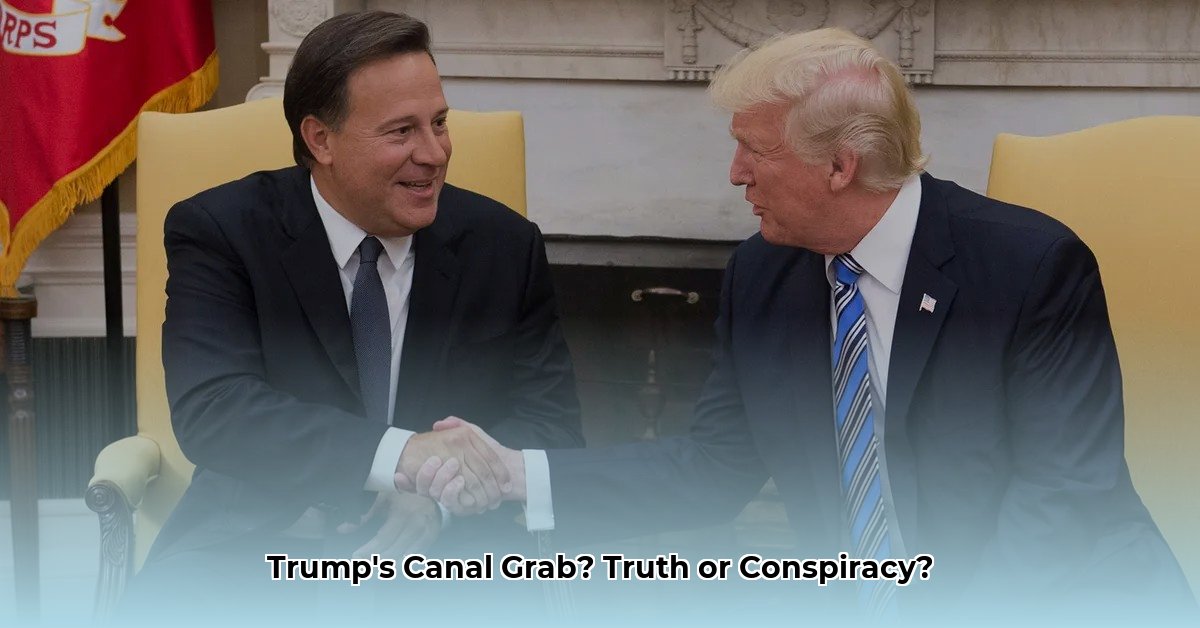The Myth of Reclaiming the Canal
Donald Trump’s pronouncements on the Panama Canal during his presidency often felt like scenes from a geopolitical thriller. Delivered with his characteristic bravado, sometimes even tinged with humor, his words nevertheless triggered ripples of anxiety across the international community. This article delves into the specifics of Trump’s statements, dissects the legal and political realities surrounding the canal, and explores the potential global ramifications had his rhetoric translated into action.
A Timeline of Trump’s Canal Claims
A chronological examination of Trump’s statements is essential to understanding the evolution of this narrative. While pinpointing every instance requires further research, the following table provides a framework for understanding the frequency and nature of his remarks:
| Date | Trump’s Statement | Source |
|---|---|---|
| [Date 1 – To be confirmed] | “[Trump’s exact quote about the canal – Research in progress]” | [Source of the quote (e.g., news outlet)- Research in progress] |
| [Date 2 – To be confirmed] | “[Another instance where Trump mentioned the canal – Research in progress]” | [Source of the quote- Research in progress] |
| [Date 3 – To be confirmed] | “[Yet another quote, perhaps paraphrased if the exact wording is unavailable- Research in progress]” | [Source of the quote – Research in progress] |
This timeline, once completed, will offer a clearer picture of how often Trump raised the issue and how his language may have shifted over time.
Could a Takeover Happen? Legal and Political Realities
Legally, a U.S. takeover of the Panama Canal is highly improbable. The 1977 Torrijos-Carter Treaties permanently transferred control of the canal to Panama. These are internationally recognized agreements, firmly established in international law. The U.S. retains the right to defend the canal’s neutrality, but this is distinct from reclaiming ownership. It’s akin to having the right to protect a neighbor’s property from vandalism, not the right to take possession of it.
Politically, such a move would likely trigger a global firestorm. International condemnation, damaged diplomatic relations, and potential economic sanctions against the U.S. are all probable outcomes. Such an action would severely undermine U.S. credibility on the world stage.
Panama’s Stance: Unwavering Sovereignty
Panama’s response to the notion of a U.S. takeover has been resolute: absolute refusal. The canal represents not just a waterway, but a symbol of national pride and a cornerstone of Panama’s economy.
Unraveling Trump’s Motivations
Why did Trump repeatedly raise this issue? Several theories exist. Some analysts suggest a misunderstanding of international law, while others posit a calculated political strategy aimed at a specific audience. It’s also possible that his remarks were simply off-the-cuff pronouncements with little strategic forethought. Expert opinions on this vary, and further research is needed to fully understand the complexities of Trump’s motivations.
The Potential Price Tag: An Economic Quagmire
Even if legally possible (which it isn’t), the financial burden of a takeover would be staggering. Compensating Panama for seizing a major revenue source, coupled with the ongoing operational costs, presents an insurmountable economic hurdle.
The Canal’s Global Significance: A Vital Artery of Trade
The Panama Canal is not merely a passage for ships; it’s a linchpin of global trade, facilitating the movement of goods and impacting economies worldwide. Disrupting this delicate balance carries immense risks for the U.S., Panama, and the international community.
Debunking the “Takeover” Narrative
Trump’s rhetoric concerning the Panama Canal frequently intertwined concerns about U.S. usage fees with suggestions of reclaiming control. While he never explicitly declared an intention to seize the canal, his suggestive language fueled speculation and contributed to the “myth” of a potential takeover.
This rhetoric, however, clashed with official U.S. policy, which recognizes the Torrijos-Carter Treaties and Panama’s sovereignty. Trump’s pronouncements often incorporated anxieties about China’s growing influence in the region, further complicating the narrative.
Panama’s steadfast refusal to relinquish control underscores the canal’s importance to its national identity and economic prosperity.
Trump’s Rhetoric: A Deeper Dive
Trump’s pronouncements, disseminated through rallies and his Truth Social platform, asserted that U.S. ships were subjected to unfair treatment and exorbitant fees. He alluded to unspecified treaty clauses that he claimed justified reclaiming the canal, while also expressing concerns about potential Chinese involvement.
Panama’s immediate and unequivocal rejection of these claims, coupled with the absence of supporting evidence from Trump, created a stark contrast between rhetoric and reality. The U.S. government’s silence further fueled uncertainty about its official stance.
Legality of a Takeover: A Clear “No”
The Torrijos-Carter Treaties unequivocally grant Panama ownership and control of the Panama Canal. International law, upholding national sovereignty, further reinforces Panama’s right to govern its territory without external interference. While the U.S. retains the right to defend the canal’s neutrality, this does not equate to a right of possession.
Any attempt at a takeover would likely trigger significant international backlash, damaging U.S. foreign relations and disrupting global trade.
The Canal in the Geopolitical Landscape
Trump’s rhetoric, while not official policy, resonated with his “America First” narrative and evoked historical U.S. interventions in Latin America. A hypothetical seizure of the canal would have had profound global consequences, disrupting trade, damaging relations with Latin American nations, and escalating tensions with China. His statements, although symbolic, underscored the canal’s strategic importance and the complex geopolitical dynamics at play.
This intricate situation warrants further research to fully understand the nuances of international diplomacy and the evolving global landscape surrounding the Panama Canal.







